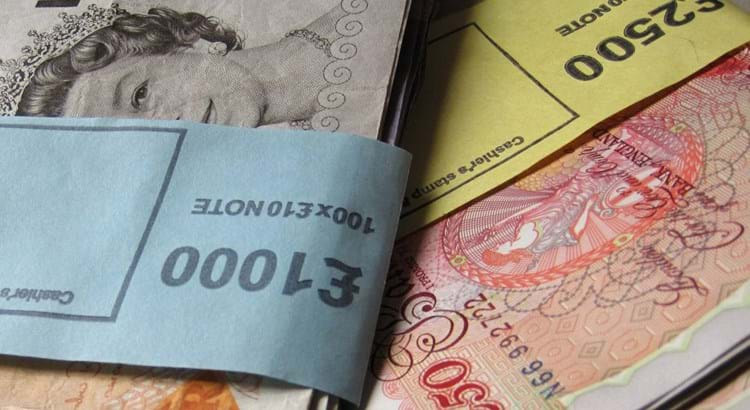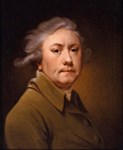Rules enacted last month place a greater onus on auctioneers and dealers to carry out checks to ensure they are not party to risky practices.
The new regulations require firms to be registered as ‘High Value Dealers’ in order to accept more than €10,000 (currently £8800) in cash and make extra checks on clients when processing transactions.
Duncan Hames, director of policy at Transparency International UK, told ATG: “High-value art and antiques, like property, are an attractive market into which the proceeds of crime and corruption can be integrated.”
He said those working with large sums need to be better informed.
“Previously we have highlighted inadequate awareness of money laundering obligations in the sector as well as low levels of suspicious activity reporting.”
Some concern exists in the trade that regulations are increasing red tape and placing an additional burden on overseas buyers in particular.
Following a tightening of procedure, even regular foreign buyers can find it difficult to access banking facilities in the UK. It is often easier for them to pay in cash.
Rudy Capildeo, lawyer at Boodle Hatfield, told ATG that educating staff is key, especially for small businesses.
“Ensuring staff are aware of the regulations, and have had the necessary training to implement these principles, will provide any dealer or auctioneer with a robust defence against money laundering and means they will be seen in a better light by HMRC.”
BADA told ATG it will be reviewing the UK legislation along with BAMF.
Background to updated law
Over the last decade, the UK has enacted a series of EU directives aimed at cracking down on money laundering.
The changes initially tightened up the rules around banks and financial institutions, before the net was widened to include sales of property, cars and jewellery as well as art and antiques.
The latest update in June to the UK’s Money Laundering, Terrorist Financing and Transfer of Funds Regulations was issued to comply with the EU’s Fourth Money Laundering Directive (2017).
The main changes
1. The maximum amount allowed for cash payments has been reduced from €15,000 to €10,000 (currently £8800) per transaction or ‘series of transactions’.
So if a client buys five items (at auction or from a dealer) “within a short period of time” with a combined value above €10,000, this would be considered to have exceeded the threshold.
Separate transactions settled at different times are generally not considered linked, but it is up to the business to establish whether the payments constitute ‘linked operations’.
Any business or sole trader wanting to make or accept cash payments above €10,000 must register as a ‘High Value Dealer’ – a status which carries additional responsibilities of due diligence (see number 3, below). Cash is defined as ‘notes, coins or travellers’ cheques in any currency’, but does not include bank transfers.
2. Dealers are required to conduct due diligence on buyers and sellers when transactions are made in cash over the threshold. Auctioneers are obliged to check the identity of buyers paying more than €10,000 in cash, but according to HMRC, do not need to perform due diligence on the vendor, as auctioneers are acting as ‘middle men’.
3. When operating as a ‘High Value Dealer’, firms are expected to ensure buyers and sellers are not classified as ‘Politically Exposed People’ (PEPs).
Checks can be made via public registers, government websites and news resources, while external tracing agencies such as Smart Search and Callcredit conduct searches for a fee.
Checks and practices
The new regulations state that ‘High Value Dealers’ must now conduct individual risk assessments on a case-by-case basis. HMRC says firms should appoint a ‘nominated officer’ with responsibility for money-laundering controls.
The recommendations of the Financial Action Task Force (an inter-governmental body) are recognised as the international standard for combating of money laundering. These include:
■ Checking the identity of clients, intermediaries, and ‘beneficial owners’ of corporate bodies
■ Reporting anything suspicious to the national agency responsible for anti-money laundering
■ Implementing and maintaining necessary management control systems
■ Keeping all documents that relate to financial transactions and the identity of clients.
Enforcement
HMRC can visit firms without warning and has the power to issue substantial fines where it deems businesses have not complied with regulations. ATG understands that some estate agents have been handed warnings and fines due to breaches.
Client behaviour to watch
The kind of behaviour which dealers and auctioneers are advised to look out for includes:
■ Clients willing to sell well below market value
■ Those operating through offshore accounts or via complex financial arrangements and those based in ‘non-cooperative’ jurisdictions
■ Clients asking questions relating to how the transaction will be reported legally
■ Buyers wishing to pay large amounts in cash
For further advice visit gov.uk/topic/business-tax/money-laundering-regulations
Sources for this article: HMRC/Boodle Hatfield
















